Startopia

| a game by | Mucky Foot Productions Limited |
| Platform: | PC (2001) |
| User Rating: | 7.0/10 - 4 votes |
| Rate this game: | |
| See also: | Best RTS Games Download, Space Games, Games Like Rimworld |
I, Martin Korda would like to right a wrong. A heinous wrong, that was committed in this very magazine, one score and one issue ago. Back in issue 104, we awarded Startopia a solid if unspectacular score of 76 per cent. Too hard to get into, was the main criticism of this god-game, based around the running and expanding of a space station hotel. Which, to a point, is fair enough. It certainly does take a while to get your three floor pleasure-dome up and running, and yes a certain amount of patience is required as you wait for the huge variety of alien life forms to start trickling in and spending money in your establishment. But that's because it's a game of rare depth, which requires you to spend a bit of time thinking about what you're doing, rather than randomly positioning entertainment venues for your visitors.
With each race bringing with them their own advantages and problems, simply watching the aliens interact with each other and their surroundings becomes fascinating, adding an extra dimension so often lacking from so many onedimensional human-based god-games.
On its initial release, Startopia didn't sell too well. I only hope that at this price, the same fate won't befall this intriguing and highly entertaining management game.
Download Startopia

System requirements:
- PC compatible
- Operating systems: Windows 10/Windows 8/Windows 7/2000/Vista/WinXP
Game Reviews
Picture something like an interstellar town: run-down and empty of intelligent life. This is where Startopia would have you apply your management talents to redeveloping a derelict doughnutshaped space station. A torus, if you want to be technical, a dump if you don't. You'll have to set about making the place over in every detail, from factories to furniture. As you do so, the station will start to fill up with a wild assortment of alien visitors, some of whom you'll hire and all of whom you'll want to keep happy. You see, you're not God in this god game, you're a civil servant. In time, you'll get to research new tech, trade with passing ships, and construct buildings as you tear down intervening bulkheads and take over more segments of the station. But first and foremost, it's a matter of keeping the punters happy and healthy so they'll release positive energy, which can then be used to finance your development plans.
There are three decks to work with: the ground floor industrial level is where you stick all the necessities, and that doesn't mean bars or brothels, it means factories, prisons and recycling plants. You need a flourishing industrial level to attract potential workers. The second floor is the Pleasure Deck, which needs little explanation. Here you do build brothels and bars, as well as hotels, clubs, galleries and anything else that might put a smile on an alien's face. The top floor is the Bio Deck, used for a mix of agriculture and recreation. You can do this thing mission-style, in which case you get to pit your wits against various scenarios. Or you can do the open-ended 'sandbox' where you set the parameters for a game that can range from potty and fairly harmless Tamagotchi tinkering, to full on and highly competitive empire building.
It's Babylon 5 crossed with Dungeon Keeper or The Sims, in an intergalactic Theme Park. What a marvellous idea.
Hold Your Horses
There is one whopping great caveat before we go any further, boldly or otherwise. This isn't SimCity or Theme Park. There are no recognisable reference points -the units are strange, the characters and races are strange (although not necessarily barkingly original), and even the basic relationships between trade, people, resources and so forth initially appear utterly impenetrable. You can look at a glowing structure and think 'What the hell is that? Why is it here?' You can look at a purple fronded tentacle thing and just have no idea what it is. In all likelihood, you'll spend a fair bit of time without the foggiest idea of what's going on, feeling frustrated and realising that the finer points are light years away.
Developer Mucky Foot hasn't gone out of its way to minimise this either, with a complex menu and camera system and an interface that insists on discarding convention left, right and centre. There are sections of the tutorial that probably need their own tutorial, while context-sensitive help seems to have gone right out the airlock.
Forget trying to play a sandbox game from day one, that's all but impossible. Instead, you have to slog through the missions - the first half-dozen or so form a dry point-by-point tutorial. It's worth persevering with if you are the type of person prepared to put maximum effort into a game, but I do find it laughable given how many pompous sermons I've heard from game publishers about 'making games accessible to the masses'.
Dont Worry Be Happy
Despite the hurdles in front of you, there is a quality strategy game waiting to be discovered. The missions mostly present pretty specific targets, but they almost always include something above and beyond the call of duty. You'll find yourself sidetracked by suicidal aliens, religious loons and convicts on the rampage, squatters, strange plagues, or cute critters that morph into terrifying vandals you can only get rid of by conning another station into accepting them as a gift. This gets taken to its logical extreme in the sandbox mode, where you set your own win requirements and all manner of bizarre circumstances conspire against you as you try to expand across the station in competition with other administrators.
What makes it all the more challenging is that the style of environment you create also dictates the type of visitor you get, and the underlying tensions. If you want to play a really militaristic expansionist role, for example, you'll need to attract the more warlike races. To get them to drop by and join your cause, you'll want a rowdier environment (and late licensing laws). But that in turn will upset more sensitive visitors, hamper overall happiness levels and development in other, possibly crucial areas. As ever in a god game, there's no perfect solution for pleasing all of the people all of the time, and as experiments in social tightrope walking go, Startopia is quirky and frequently quite intriguing.
If you can stand the painful beginnings and the awkward interface, Startopia will reward you with a cute but tough and unusual take on the god gaming genre. But don't be fooled into expecting the impact and humour of Dungeon Keeper, or the soap opera familiarity of The Sims. It's good, but it's not that good.
Combat And Multiplayer
Simple, effective combat in a god game? Yeah right.
God games tend to make a complete hash of combat or shy away from it altogether. Startopia's combat is simple yet effective. The business of physically capturing territory from your opponents while maintaining your own security levels doesn't require an Einstein or a Napoleon, but is still fun to set in motion. The fighting involves mustering suitable muppets from the more warlike visitors to your sector, designating targets and sitting back to watch the ensuing mess.
The link to multiplayer Startopia is obvious. At the time of going to press there were -unsurprisingly - no public servers available through the built-in Gamespy tab, but the principles look sound and we'll be revisiting the multiplayer game in a forthcoming issue. In multiplayer the 16-unit station is divided up between up to three players who then try to expand their empire as far as possible across the station. The goal is to boot the other players off the station, by fair means or foul.
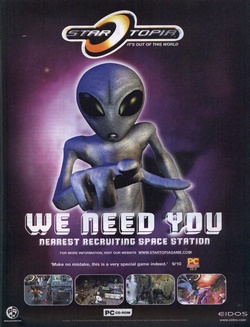



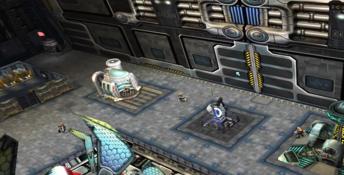


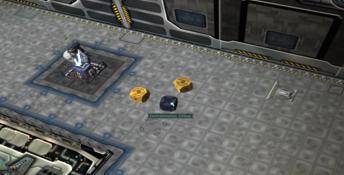

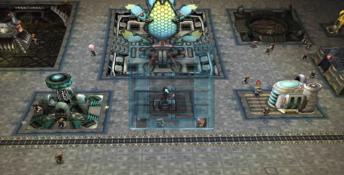

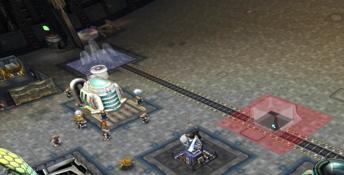

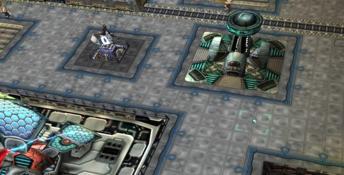

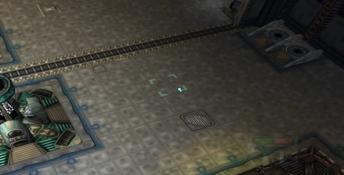



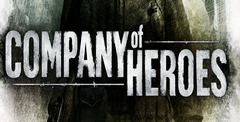 Company of Heroes
Company of Heroes
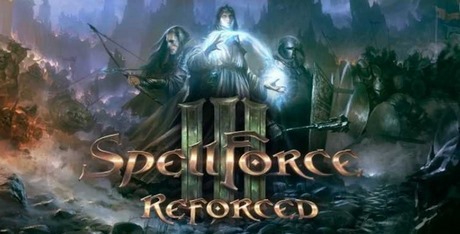 SpellForce III Reforced
SpellForce III Reforced
 Starcraft 2: Nova Covert Ops
Starcraft 2: Nova Covert Ops
 Command & Conquer
Command & Conquer
 Space Rangers 2: Rise of the Dominators
Space Rangers 2: Rise of the Dominators
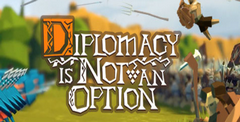 Diplomacy is Not an Option
Diplomacy is Not an Option
 KKND (Krush, Kill 'N Destroy)
KKND (Krush, Kill 'N Destroy)
 Warlords Battlecry 2
Warlords Battlecry 2
 Pikmin 3
Pikmin 3
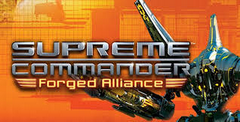 Supreme Commander: Forged Alliance
Supreme Commander: Forged Alliance
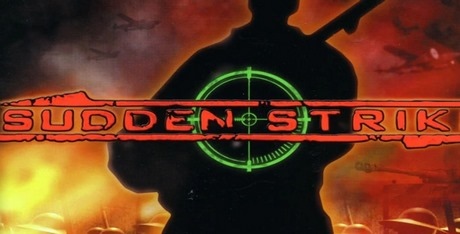 Sudden Strike
Sudden Strike
 Epic Fantasy Battle Simulator
Epic Fantasy Battle Simulator
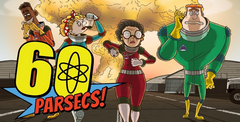 60 Parsecs!
60 Parsecs!
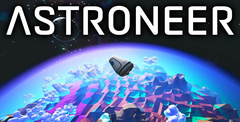 Astroneer
Astroneer
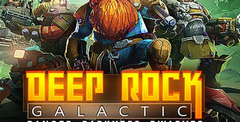 Deep Rock Galactic
Deep Rock Galactic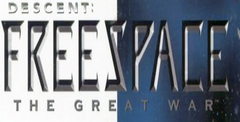 Descent: FreeSpace-The Great War
Descent: FreeSpace-The Great War
 Homeworld
Homeworld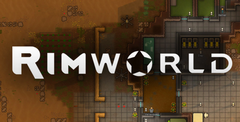 Rimworld
Rimworld
 Spore
Spore
 Spore: Galactic Adventures
Spore: Galactic Adventures Star Control 3
Star Control 3
 Star Wars Episode I: The Phantom Menace
Star Wars Episode I: The Phantom Menace